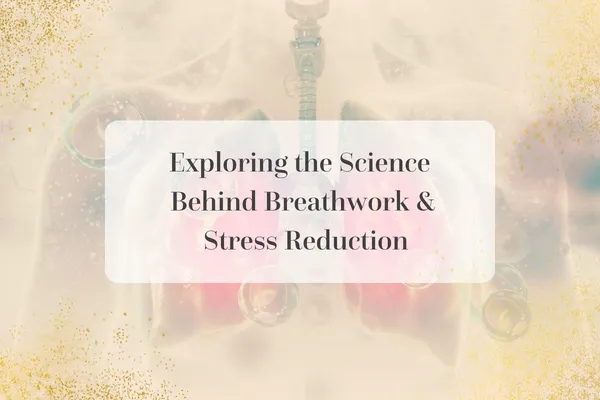
Exploring the Science Behind Breathwork and Stress Reduction
Exploring the Science Behind Breathwork and Stress Reduction
In the fast-paced modern world, stress has become an unwelcome companion for many of us. Juggling work, family, and personal responsibilities often leaves us feeling overwhelmed and mentally fatigued. However, did you know that there's a simple and scientifically-backed technique that can help alleviate stress and promote a sense of calm? Enter breathwork – a practice that goes beyond the surface and taps into the very biology of our bodies to bring about relaxation and tranquility. In this article, we'll delve into the science behind breathwork and its profound impact on stress reduction.
The Stress Response and the Autonomic Nervous System
Before we unravel the science, let's briefly understand how stress affects us. When we encounter a stressor, whether it's a looming deadline or a traffic jam, our body's "fight or flight" response is triggered. This automatic reaction, mediated by the sympathetic branch of the autonomic nervous system, floods our body with adrenaline and other stress hormones. While this response can be beneficial in acute situations, chronic stress can take a toll on our physical and mental well-being.
Enter the Parasympathetic Nervous System
Here's where breathwork enters the scene as a stress-busting superhero. By engaging the parasympathetic branch of the autonomic nervous system, also known as the "rest and digest" mode, breathwork can counteract the effects of chronic stress. When we engage in slow, deep breathing, the vagus nerve – a major player in the parasympathetic nervous system – is activated. This leads to a decrease in heart rate, blood pressure, and stress hormone levels.
The Role of Carbon Dioxide
It might surprise you to learn that carbon dioxide, often considered a waste product, plays a crucial role in the science of breathwork. When we inhale deeply and slowly, we increase the amount of oxygen entering our bloodstream. This oxygen combines with hemoglobin in our red blood cells to form oxyhemoglobin. Simultaneously, our body produces carbon dioxide as a result of metabolic processes. When we exhale slowly, we allow the body to rid itself of excess carbon dioxide. This delicate balance of oxygen and carbon dioxide has a direct impact on our blood pH and influences our state of relaxation or alertness.
The 4-7-8 Technique and Stress Reduction
One popular breathwork technique, the 4-7-8 technique, offers a practical demonstration of the science behind stress reduction through breath. By inhaling for 4 counts, holding for 7 counts, and exhaling for 8 counts, you extend the exhalation phase of the breath. This extended exhalation triggers the body's relaxation response by stimulating the vagues nerve and encouraging a shift to the parasympathetic state.
Mindfulness and Cortisol Regulation
Mindfulness, an essential aspect of many breathwork practices, also plays a role in stress reduction. Mindfulness involves paying non-judgmental attention to the present moment. When we combine mindfulness with breathwork, we enhance our ability to manage stress by reducing cortisol levels. Cortisol, commonly known as the stress hormone, is released in response to stressors. Mindful breathwork can interrupt the cycle of cortisol release, leading to reduced stress and improved emotional well-being.
Long-Term Benefits of Breathwork
Consistent practice of breathwork doesn't only offer immediate stress relief but also has long-term benefits for our overall health. Regular engagement with the parasympathetic nervous system can lead to improved digestion, enhanced immune function, better sleep quality, and even a more positive outlook on life.
In conclusion, the science behind breathwork and stress reduction is a captivating journey into the intricate dance of our autonomic nervous system, respiratory physiology, and mindfulness practices. By consciously manipulating our breath, we can tap into the body's natural ability to counteract stress, induce relaxation, and promote overall well-being. So, the next time stress knocks at your door, take a deep breath – the science is on your side.
If you would like to learn about our Influential Breathwork Coach™️ Certification, join the Wait List here.






